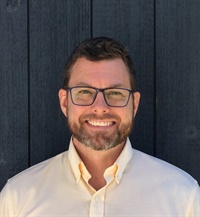Ethics Across The Professional Lifespan
- Topic Areas:
- Ethics | Risk Management
- Categories:
- Pre-Recorded Homestudy
- Speaker:
- Ken Major, PsyD
- Course Levels:
- Intermediate
- Duration:
- 5 Hours 41 Minutes
- Format:
- Audio and Video
- License:
- Never Expires.
Producer: New Hampshire Psychological Association
Description
This workshop will approach the topic of psychotherapy ethics from a provider-centered perspective. We will explore a wide variety of practical, developmentally-related issues that can lead to ethical impairment, including the pressures of conformity in early career, role and values conflicts due to personal challenges in mid-career, and difficulties associated with burnout or changes in functioning in later life. From working late with a toddler at home to loneliness after a divorce, from compassion fatigue after the death of a parent to being unprepared for retirement, we will consider how experiences across the lifespan of practice may lead otherwise thoughtful professionals toward unethical, unlawful, or clinically dangerous choices, and discuss practical strategies for anticipating, avoiding, and mitigating such outcomes. The framework for this developmental approach to ethics will be generalizable to clinical, supervisory, and teaching roles, and all examples provided will cite relevant ethics codes, state laws, and pertinent research. Lastly, we will review numerous changes in the field and larger culture, including the lasting impact of COVID-19 on telehealth and the influence of national politics on treatment, and identify resources for maintaining ethical practice in response. With an approach that aims for candor, relevance, humor, and practicality, this will be an engaging and up-to-date training on the topic of professional ethics.
Learning Objectives
This workshop is designed to help participants:
-
Describe the existing research on developmentally-informed psychologist/psychotherapist ethics
-
Evaluate different ethical decision-making models from a practice standpoint
-
Identify ethical challenges specifically associated with training, early, mid-, and late-career professional roles.
-
Discuss strategies to reduce the likelihood of ethical breaches using a professional developmental framework
-
Apply a developmental approach to professional ethics to enrich clinical, supervisory, and personal development.
-
Identify how technological, cultural, and political forces have altered the practice landscape and amplify resources for ongoing self care and clinical effectiveness
About the presenter
Ken Major is a licensed psychologist-doctorate in, and resident of, Vermont. He works for the Department of Veterans Affairs’ Greentree Regional Clinical Resource Hub, based in Pittsburgh, Pennsylvania, as part of a team that provides video-based specialty mental healthcare to rural veterans across six states. He has previously been a staff psychologist in VA hospital systems in Texas and Vermont and was the director of risk and quality management for a county-wide Vermont designated agency from 2011-13. Dr. Major has worked with the VA’s Academic Detailing Service and the National Center for PTSD on a number of nation-wide patient and provider educational resources is a past Chairperson of the Vermont Psychological Association’s Ethics Committee and was the 2010 co-recipient of the Professional Service Award, a national award granted by the Association of VA Psychologist Leaders.
In order to receive CEs for this homestudy, the entire video must be viewed. There will be a quiz and an evaluation. Once those are completed a certificate will be distributed.
Credits
Courses sponsored by the Vermont Psychological Association are pre-approved for continuing education for psychologists by the Vermont Board of Psychological Examiners. This course earns 6 ethics continuing education credits.
Continuing education courses sponsored by the Vermont Psychological Association are pre-approved by the Vermont Office of Professional Regulation for continuing education credit for licensed independent clinical social workers in Vermont.
This course has been approved for continuing education credit by the Vermont Board of Allied Mental Health. This course qualifies for 6 hours of ethics continuing education.
Courses sponsored by the Vermont Psychological Association are pre-approved for continuing education for psychologists by the Vermont Board of Psychological Examiners. This course qualifies for 6 continuing education credits.

The New Hampshire Psychological Association is approved by the American Psychological Association to sponsor continuing education for psychologists. The New Hampshire Psychological Association maintains responsibility for this course and its content.
Completion of this course earns 6 continuing education credits. Psychologists licensed in states which approve courses sponsored by APA-approved sponsors may earn homestudy continuing education credit for taking this course.
The Vermont Psychological Association is approved by the American Psychological Association to offer continuing education for psychologists. These credits are also accepted by the New Hampshire Board of Mental Health Practice for clinical social workers licensed in New Hampshire, as provided in Mhp 402.02(b)(1). The course qualifies for 6 continuing education credits.
The Vermont Psychological Association is approved by the American Psychological Association to offer continuing education for psychologists. These credits are also accepted by the New Hampshire Board of Mental Health Practice for clinical mental health counselors licensed in New Hampshire, as provided in Mhp 402.02(b)(1). The course qualifies for mandated credit types as follows:
Ethics:
Suicide Prevention:
The New Hampshire Psychological Association is approved by the American Psychological Association to sponsor continuing education for psychologists. The New Hampshire Psychological Association maintains responsibility for this program and its content.
Psychologists licensed in states which approve courses sponsored by APA-approved sponsors may earn homestudy continuing education credit for taking this course.
This course is offered by a sponsor approved to offer continuing education to clinical social workers in Massachusetts under 258 CMR sec 31.04(2)(d). This course earns 6 ethics CE credits.
Handouts
| Ethics Across The Professional Lifespan 1 (14.3 MB) | 30 Pages | Available after Purchase |
| Ethics Across The Professional Lifespan 2 (10.5 MB) | 30 Pages | Available after Purchase |
| Ethics Across The Professional Lifespan 3 (7.7 MB) | 15 Pages | Available after Purchase |
| Ethics Across The Professional Lifespan 4 (1.5 MB) | 10 Pages | Available after Purchase |
| Ethics Across The Professional Lifespan References (203.2 KB) | 5 Pages | Available after Purchase |
| Ethics Across The Professional Lifespan Resources (239.1 KB) | 5 Pages | Available after Purchase |
Course Objectives
Objective 1Describe the existing research on developmentally-informed psychologist/psychotherapist ethics
Objective 2
Evaluate different ethical decision-making models from a practice standpoint
Objective 3
Identify ethical challenges specifically associated with training, early, mid-, and late-career professional roles.
Objective 4
Discuss strategies to reduce the the likelihood of ethical breaches using a professional developmental framework
Objective 5
Apply a developmental approach to professional ethics to enrich clinical, supervisory, and personal development.
Objective 6
Identify how technological, cultural, and political forces have altered the practice landscape and amplify resources for ongoing self care and clinical effectiveness




